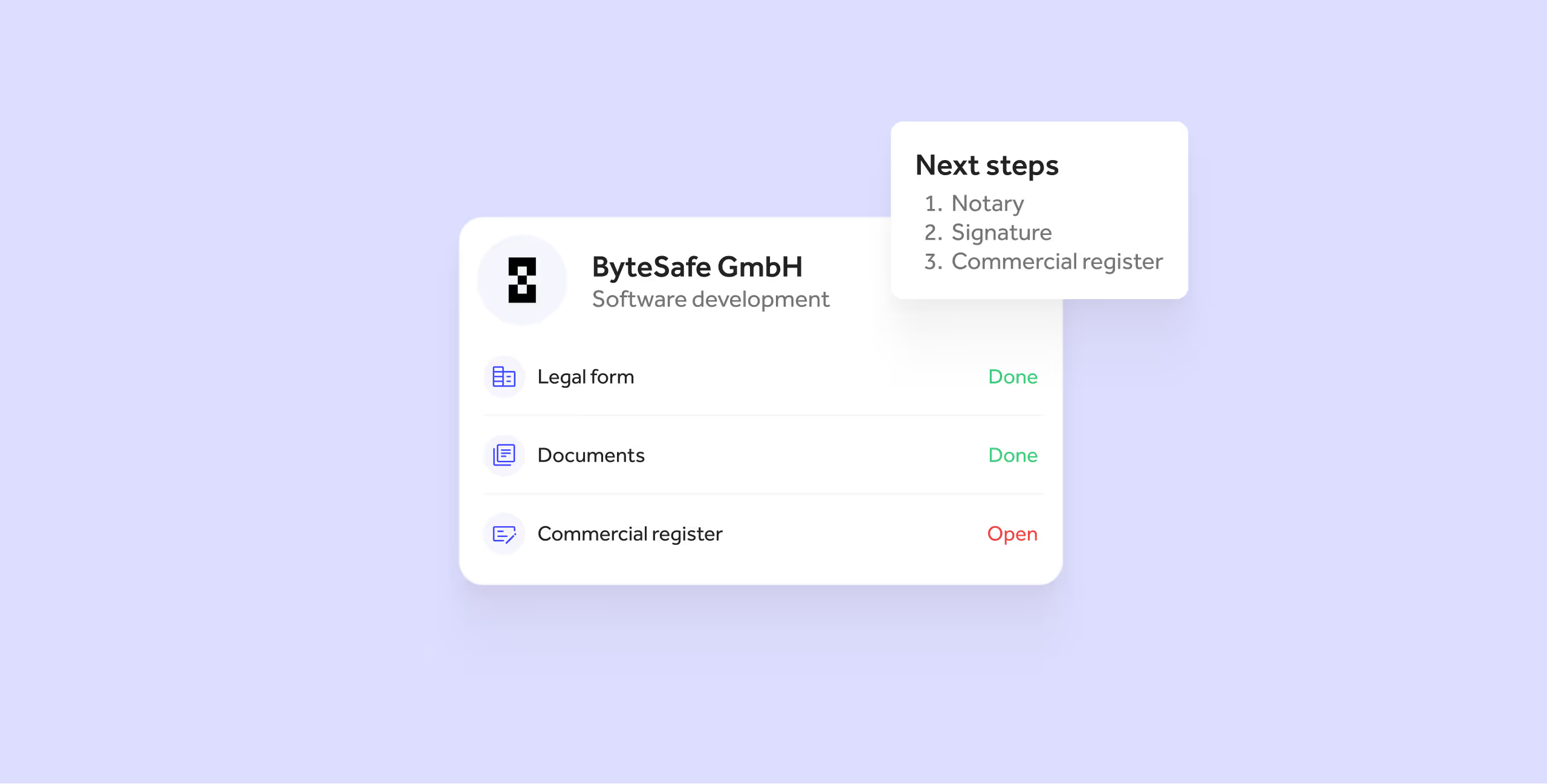
Starting a Business in Switzerland: A Practical Guide
Starting a business in Switzerland: legal forms, insurances, payroll, and tax obligations. quitt Business ensures compliant payroll and HR administration.

Switzerland offers a stable environment, clear legal frameworks, and a dynamic ecosystem – making it an attractive location to start a business. Here are the key steps and obligations you need to know.
Step 1 – Choose the Legal Structure
Four legal forms are most commonly used in Switzerland:
- Sole Proprietorship
- Suitable for solo entrepreneurs.
- No minimum capital required.
- Commercial register entry only required if annual turnover exceeds CHF 100,000.
- Mandatory registration with the AHV/AVS compensation office.
- No notary required.
- General Partnership (SNC)
- For two or more partners.
- No minimum capital.
- Commercial register entry mandatory.
- No notary required.
- Limited Liability Company (GmbH/Sàrl)
- Minimum capital CHF 20,000.
- Commercial register entry mandatory.
- Notarization required.
- Corporation (AG/SA)
- Minimum capital CHF 100,000 (at least CHF 50,000 paid in).
- Commercial register entry mandatory.
- Notarization required.
- Popular with startups, as it facilitates fundraising and investor participation.
Step 2 – Define Capital Distribution
Founders must decide how shares are distributed and contribute their portion of the minimum required capital (e.g., 50/50 split → each founder contributes half).
Step 3 – Deposit Capital at a Bank
For GmbH or AG incorporation, the capital must be deposited into a blocked account at a bank. The bank issues a certificate required for the commercial register entry.
Step 4 – Prepare and Certify Documents
Articles of incorporation and required documents are prepared and notarized. Founders must sign physically (in person or via videoconference with ID verification).
Step 5 – Register with the Commercial Register
Once notarized, the company is officially registered in the commercial register – finalizing the incorporation process.
Obligations After Incorporation
Incorporation is just the beginning. Swiss companies face several mandatory obligations:
Social Insurance
- AHV/IV/EO (1st pillar): registration with the cantonal compensation office.
- Accident Insurance (UVG/LAA):
- Mandatory for all employees.
- Covers only occupational accidents if < 8 hours/week.
- Covers both occupational and non-occupational accidents if ≥ 8 hours/week.
- Occupational Pension (BVG/LPP): mandatory if annual salary per employee exceeds CHF 22,680 (2025).
- Recommended additional insurance: liability insurance, daily sickness allowance, property insurance, legal protection.
Cantonal Registration
- Register the company with the cantonal compensation office at the head office or branch.
- Payment of family allowances (rates vary by canton, e.g., 2.65% in Vaud).
- Possible cantonal deductions (e.g., PC Familles in Vaud).
Foreign Employees
- Require a valid work/residence permit (B, C, Ci, G, L).
- Employees without a C permit must be registered with the withholding tax office in their canton of residence.
How quitt Business Supports You
Starting a business is the first step. But from the moment you hire employees, HR and payroll obligations quickly become complex.
quitt Business handles it all for you:
- Registration with social insurances (AHV, UVG, BVG).
- Salary calculation and payments.
- Tax declarations, including withholding tax.
- Family allowance administration.
- Preparation of employment contracts, payslips, and salary certificates.
👉 You focus on growing your startup – we ensure compliance and efficient payroll administration.
Conclusion
Starting a business in Switzerland follows a clear legal process, but comes with numerous administrative and social insurance obligations.
With quitt Business, you gain a reliable partner for transparent, compliant, and efficient payroll and HR administration – right from your first employee.
Wages, declarations, insurance, payments: We take care of everything from A to Z. No paperwork, no surprises.
Learn more
The complete starter package with all documents: employment contract, team contract, expense regulations and employment checklist
Download for free
Calculate the wage costs of your employees with our free payroll calculator.
Calculate payroll deductions
